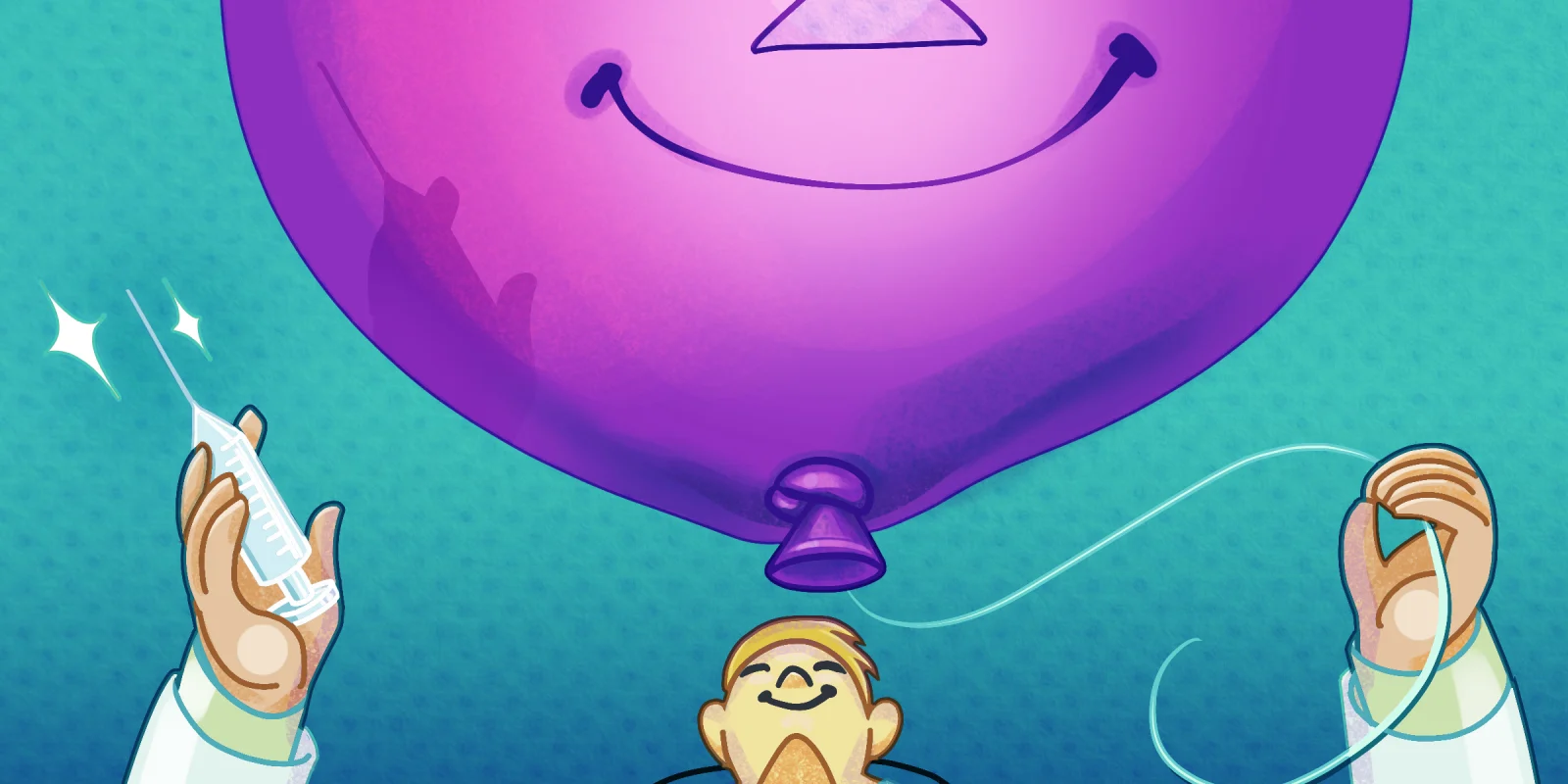
We’ve all dealt with the cocky consultant with his condescending tone and wondered why someone who seems to have no interest in actually helping people went into medicine. Personality disorders aside, what I find most perplexing is how anyone who has been practicing medicine for any length of time could possibly maintain such unrestrained arrogance.
Admittedly, I was more full of myself as a younger doctor and man. I can’t say exactly when I learned perhaps the most important trait of being a doctor: humility. I can, however, recount numerous times when I’ve been humbled in medicine, which I suppose over time have instilled a sense of humility into my practice and my personality.
One of these “character-building” episodes most prominent in my memory was the first time I put in a central line as an intern. As a medical student, I had been fortunate to do a fair number of procedures, including central lines. I placed several smoothly enough to foolishly think I was a natural.
Fast forward to internship, when my senior resident asked me and one of my classmates, Bill, if we had ever put in a central line. I said “Yes, several.” Bill had never done one.
“Great,” the senior resident said. “Take Bill with you and show him how to do one, will you?” The notion that I would be teaching my fellow intern only reinforced my self-assuredness.
I gathered the equipment, explaining “my approach” to the procedure to Bill, based on my weeks of experience, and we went to the patient’s bedside. The patient, Mr. J, was an elderly man with advanced dementia and severe kyphosis who shoulders were rounded forward and inward. I was to place a subclavian line. I couldn’t get his shoulders into a more natural position, and knew the angle of insertion wasn’t going to be “what I was used to,” as if I was now some sort of expert. This wasn’t the time for self-doubt, however. It was the time to show Bill who was who in our intern class.
Long story short, after making a pin-cushion out of Mr. J for a half hour, the only blood I had to show for it was the hematoma I’d caused. After seeing me flail and fail miserably, the shoe was clearly on the other foot, with Bill undoubtedly thinking to himself, “Yes, I guess we know who’s who now, don’t we?” Reticent to abandon my efforts, I tried the other side before finally surrendering long after a reasonable number of attempts had passed.
The best part? After botching my attempt to impress Bill and my senior resident, as well as further inflate my ego, I failed to get access and managed to drop Mr. J’s lung in the process. That’s right -- my very first attempt at a central line as an ER resident resulted in an iatrogenic pneumothorax. To top it off, the senior resident let Bill put in the chest tube, something I had never done.
Simply put, it was a karmic smackdown of epic proportions. It actually personified karma, as if karma had read my mind, started shaking its head and chuckling, then sat me down and said, “I’ve got something for you.”
Mind you, this wasn’t the first dumb thing I’d ever done. There was the time in med school on my neurology rotation when I was testing sensation in the feet of a patient with MS. I didn’t have a safety pin, so I brilliantly improvised with a hypodermic needle I pulled out of the cabinet in the patient’s room (in the days before a retinal scan and chain of custody form were required to obtain vital medical supplies such as Hemoccult developer). I meticulously tested about ten spots on each foot, obliviously recording each jolted response of “Sharp!” Seconds later I looked down in horror at the twenty drops of blood on the patient’s feet. I attempted to coolly act as though this was just part of the process as I quickly wiped off the blood. Any illusion I had that the patient was none the wiser was erased when, during attending rounds, he proclaimed, “Don’t worry, Reggie. The bleeding stopped.” Fortunately, my attending had no idea what the patient could have been referring to, since bloodletting wasn’t big in neurology. Yes, I was a real “medical MacGyver,” with one subtle difference between us: MacGyver wasn’t an idiot.
My misguided lung biopsy on Mr. J was also far from the last failure I’ve experienced in medicine, but here’s the thing: I’ve had a lot of successes, too. Over the past twenty years as an ER doctor, I’ve been privileged to play a role in some of the most poignant, resilient and tragic moments in patients’ lives. I’ve been devastated and elated. Right and wrong. Laser-focused and distracted. Compassionate and burned-out. Human.
I’ve never lost sight of the fact that while expansive knowledge and refined technical skills are what we all aspire to, sometimes a little luck goes a long way. I’ve been the heroic “second doctor” to swoop in and save the day when a colleague couldn’t get an LP or reduce a joint. I’ve also learned not to be afraid to ask for help when things aren’t going my way, or the patient’s, and to let one of my friends come to the rescue without permanently damaging my sense of self-worth. I’m grateful for all the times I’ve nailed the procedure or stumbled upon the correct diagnosis without ever fully understanding how.
Medicine is a humbling profession, and anyone who has worked in a difficult environment with lives on the line must know that. If you don’t, you just haven’t been paying attention.
Dr. Duling is an Emergency Medicine physician.






